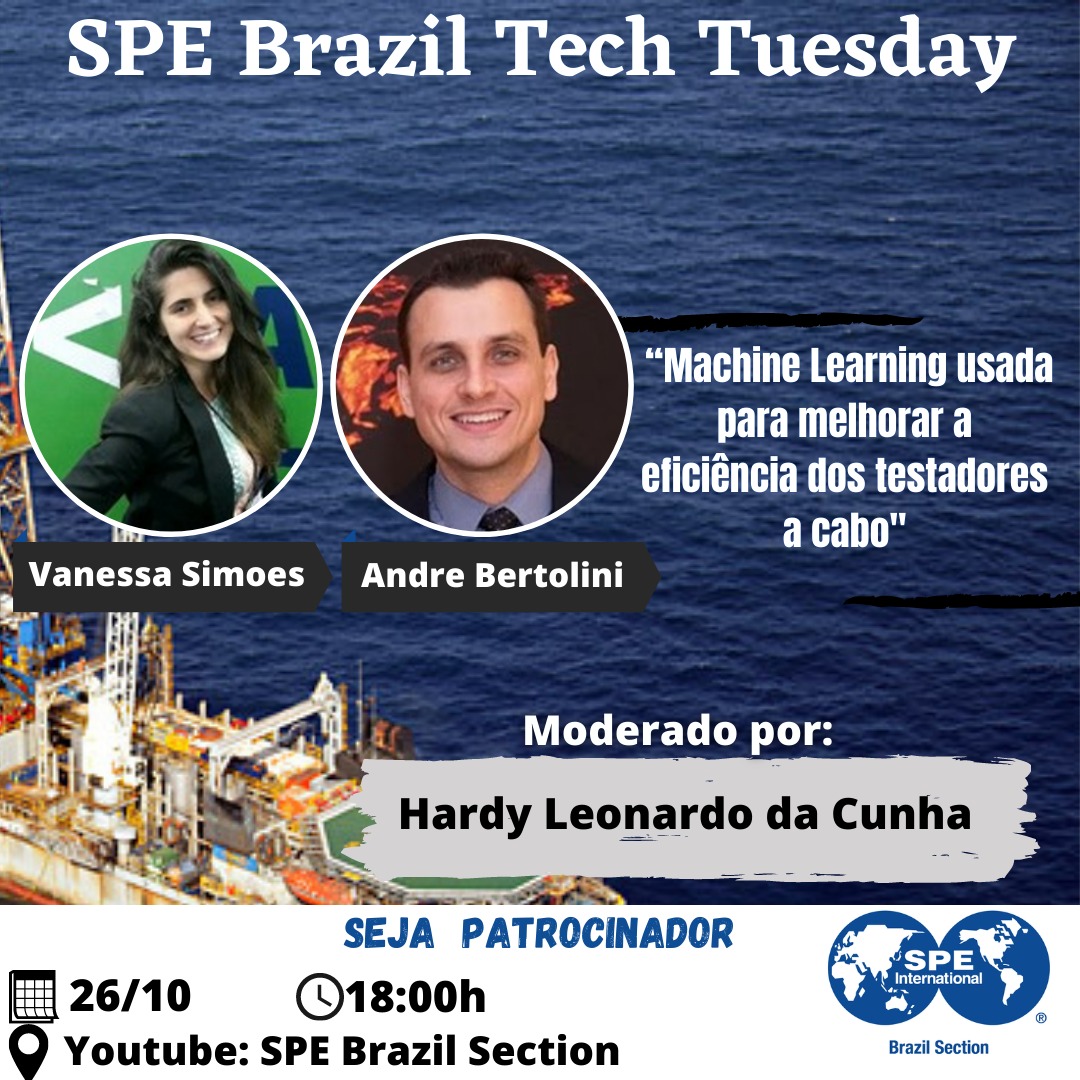Postado em:
SPE Brazil Tech Tuesday – 26 de outubro
"Machine Learning usada para melhorar a eficiência dos testadores a cabo”

Prezados membros da SPE e colegas da indústria de E&P,
A SPE Seção Brasil realizará em 26/10, às 18:00h, no canal da SPE Brasil no YouTube mais uma edição da SPE Brazil Tech Tuesday.
Nesta edição abordaremos o tema: “Machine Learning usada para melhorar a eficiência dos testadores a cabo“, proferida por Andre Bertolini e Vanessa Simoes (Schlumberger).
Moderador:
Hardy Leonardo da Cunha Pereira Pinto
Se inscreva no canal e ative o lembrete para não perder.
Abstract:
One of the variables influencing most of the Wireline Formation tester (WFT) cleanup time is the depth of mud filtrate invasion. Thus, reducing this time is a determinant for the WFT operational efficiency. The model for mud invasion has been successfully tested on a complex carbonate well, and the results for the depth of mud invasion were comparable to the results obtained with a commercial data-driven inversion using multiple resistivity channels. The estimated cleanup time using the results of the depth of invasion predicted by the forward model was compared and matched with field sampling stations in carbonate formation, and there was a high correlation indicating that zones with the lower depth of invasion required less cleanup time. Besides, using the history-matched cases, different WFT technologies such as single and radial probes, focused, unfocused, and dual-packer WFT inlets were evaluated, showing a high potential for reduction of operational time when properly planned and selected for the specific type of reservoir.
Mini bios:
Dr. Andre Carlos Bertolini is a Principal Reservoir Engineer and Reservoir Domain Champion for Brazil. He is supporting the acquisition and interpretation of formation testers, well testing, and reservoir engineering software. He studied electrical engineering at Federal University of Itajubá (UNIFEI) and holds a Ph.D. in science and petroleum engineering specialized in reservoir simulation from State University of Campinas (UNICAMP), Brazil. André has 17 years of experience in the oil & gas industry, from field onshore and offshore operations to reservoir engineering studies. He started as a wireline field engineer at Schlumberger, then worked as a reservoir engineer for the data & consulting service segment and then was at the Brazil Research Center (BRGC) as a Reservoir Engineering Project Manager.
Dr. Vanessa Simoes has been working in the research and technology group in Schlumberger since 2013. She graduated in computing and applied mathematics from University of Sao Paulo (USP) in 2006. She received her master’s degree and PhD in mathematics from Instituto de Matemática Pura e Aplicada (IMPA) in 2009 and 2013, respectively, and concluded two specialization programs in data analytics and deep learning in PUC, Rio de Janeiro. She is currently working on data integration and machine learning algorithms, petrophysical interpretation, and signal processing. Her technical interests include acoustics, data analysis, statistics, and rock physics